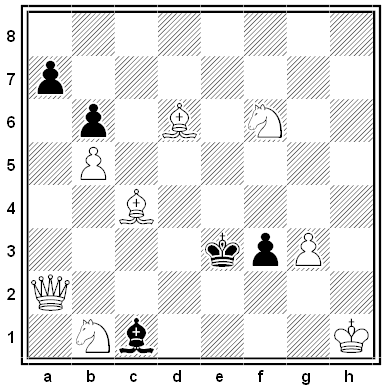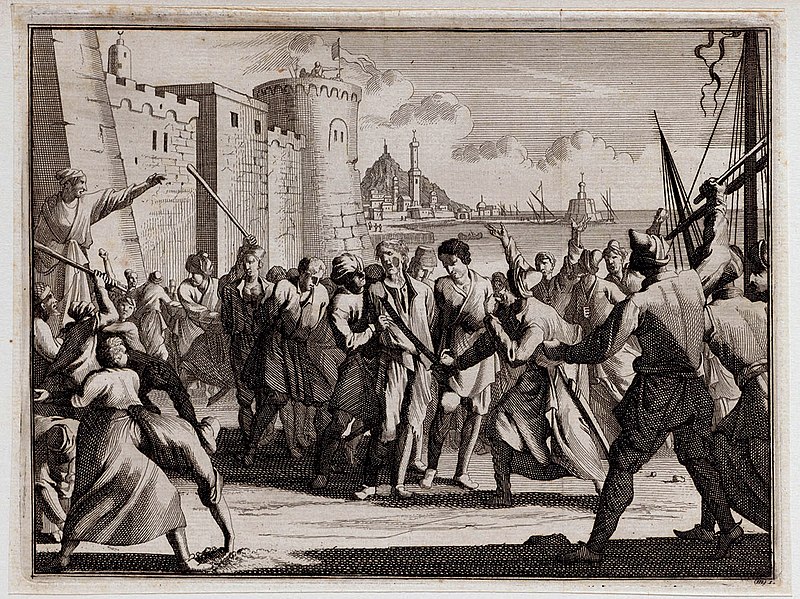
It’s sometimes suggested that the modern QWERTY keyboard was designed so that typewriter salesmen could impress customers by typing the phrase TYPEWRITER QUOTE on the top row of keys.
It wasn’t, but they could.

It’s sometimes suggested that the modern QWERTY keyboard was designed so that typewriter salesmen could impress customers by typing the phrase TYPEWRITER QUOTE on the top row of keys.
It wasn’t, but they could.

The home workspace of National Geographic Society Explorer-in-Residence Wade Davis includes an overhead library.
“The original idea I had was to put the books that meant the most to him over his head at all times, floating, above and in his head as his own, very personal lyric,” said architect Travis Price.
“The dome shape above was a tholos, the shape of a pregnant woman’s womb, similar to the rotunda of the oracle’s temple at Delphi.”
(From Alex Johnson, Improbable Libraries, 2015.)
Sign-language expressions adopted by modern monks who live in an atmosphere of silence:
bulldozer = bull + push
boiler room = boil + room
computer = I + B + M
machine = “place fists together then twirl thumbs around one another several times”
dump truck = unload + machine
tractor = red + horse
machinist = brother + work + machine
jelly department = sweet + butter + house
refrigerator = cold + house
gasoline = oil + fire
plane = metal + wing
“There are signs for turkey (thank + God + day + bird: an original sign meaning “Thanksgiving Day bird”) and hen (egg + bird) but the latter designation refers to the hen as a source of eggs and not of flesh.”
From Monastic Sign Languages, ed. Jean Umiker-Sebeok and Thomas A. Sebeok, 2011.

In the 1890s, traveler Henry Attwell found that the residents of rural Holland used their hands to recall which months of the year have 31 days:
The knuckles of the hand represent months of thirty-one days, and the spaces between represent months of thirty days. Thus, the first knuckle is January (thirty-one), the first space February (twenty-eight or twenty-nine, the exception), the second knuckle March (thirty-one), the second space April (thirty), &c. The fourth knuckle, July (thirty-one), is followed by the first [of the other hand], August [thirty-one], and so on, until the third knuckle is reached a second time. This sequence of two knuckles corresponds with the only sequence of months (July and August) which have each thirty-one days.
“This memoria tecnica certainly gives a more ready result than the rhyme [‘Thirty Days Hath September’].”
(From Angus Trumble, The Finger: A Handbook, 2010.)

Man: Hello, my boy. And what is your dog’s name?
Boy: I don’t know. We call him Rover.
— Stafford Beer
A writer in The Builder has cleverly suggested that bridges might be erected in the crowded thoroughfares of London for the convenience of foot passengers, who lose so much valuable time in crossing. As the stairs would occupy a considerable space, and occasion much fatigue, I beg to propose an amendment: Might not the ascending pedestrians be raised up by the descending? The bridge would then resemble the letter H, and occupy but little room. Three or four at a time, stepping into an iron framework, would be gently elevated, walk across, and perform by their weight the same friendly office for others rising on the opposite side. Surely no obstacles can arise which might not be surmounted by ingenuity. If a temporary bridge were erected in one of the parks the experiment might be tried at little cost, and, at any rate, some amusement would be afforded. C.T.
— Notes and Queries, July 17, 1852

Alex Bellos set a pleasingly simple puzzle in Monday’s Guardian: How many ways are there to arrange four points in the plane so that only two distances occur between any two points? He gives one solution, which helps to illustrate the problem: In a square, any two vertices are separated by either the length of a side or the length of a diagonal — no matter which two points are chosen, the distance between them will be one of two values. Besides the square, how many other configurations have this property?
The puzzle comes originally from Dartmouth mathematician Peter Winkler, who writes, “Nearly everyone misses at least one [solution], and for each possible solution, it’s been missed by at least one person.”
In On the Origin of Species, Darwin wrote that bumblebees are the only pollinators of red clover.
In 1862 he discovered that this is wrong — honeybees do it as well.
He wrote to his friend John Lubbock, “I hate myself, I hate clover, and I hate bees.”

“A fairly good two-mover” from Benjamin Glover Laws’ The Two-Move Chess Problem, 1890. What’s the key move?

One night in 1631, pirates from the Barbary coast stole ashore at the little Irish village of Baltimore and abducted 107 people to a life of slavery in Algiers — a rare instance of African raiders seizing white slaves from the British Isles. In this week’s episode of the Futility Closet podcast we’ll describe the sack of Baltimore and the new life that awaited the captives in North Africa.
We’ll also save the Tower of London and puzzle over a controversial number.